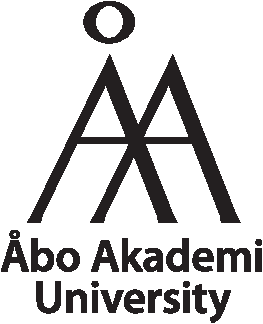Profile

Group Leader
Michael Courtney Ph.D.
University of Turku
miccou[at]utu.fi
michael.courtney[at]bioscience.fi
Contact Information
Neuronal Signalling Laboratory
Turku Bioscience
University of Turku
Biocity
P.O. Box 123
Tykistökatu 6A
FIN-20521 Turku, Finland
+358 (0)50 464 9827
Description of the Research
Aberrant signalling is widely accepted to play a significant role in the initiation and progression of disease. However, disease-associated signalling pathways typically have important roles in development and physiology, complicating the use of drugs targeting signalling proteins. Thus, generic mediators such as the MAP kinases contribute to development, differentiation, plasticity, survival and proliferation in addition to their well-established roles in diseases. This suggests that direct inhibition of the MAPKs themselves may be of only limited therapeutic use. Our recent work has shown that the downstream functional consequences of pathway inhibition can depend more on the frequency of inhibition than on the total integrated inhibition applied. This is an unexpected result and is likely to relate to the resonant properties of cell signalling circuits, a currently poorly understood and largely overlooked phenomenon. In order to exploit signalling pathways for the generation of novel therapeutic approaches for disorders of the nervous system and other organs, it will be necessary to not only fully elucidate the mechanisms that organise these pathways into pools with pathological or physiological actions within the complex structure of cells such as neurons, but also to acquire a better understanding of cell signalling dynamics.
Our laboratory investigates how protein interactions shape signalling dynamics in cells, with particular emphasis placed on the mechanisms that cells use to organise signalling proteins thereby ensuring specificity of function and efficiency of signal propagation. Our research combines biochemical and biophysical studies of key proteins together with cell and molecular biology approaches including protein engineering, single-cell and population-based optical measurements together with design and development of optical and other actuation approaches and techniques. This work is supported by synaptic proteomics, assay development and high-throughput methods aimed at identification of small molecules active on pathways under study. We complement these approaches by collaborating with teams focusing on preclinical models of disease, structural biology and mathematical modelling of signalling networks and circuits.
Major Collaborations
- Olli Pentikäinen, Institute of Biomedicine, University of Turku, Turku, Finland
- Otto Kauko, Turku Centre for Biotechnology, University of Turku, Turku, Finland
- Florian Freudenberg, Frankfurt University Hospital, Frankfurt, Germany
- Pekka Ruusuvuori, Institute of Biomedicine, University of Turku, Turku, Finland
- Andrea Hohmann and Yvonne Lai, University of Indiana, Bloomington, USA
- Francisco Lopez-Picón, Turku PET Centre, University of Turku, Turku, Finland
- Laura Elo, Turku Centre for Biotechnology, University of Turku, Turku, Finland
- Antti Poso, University of Eastern Finland, Kuopio
The Lab’s Project Funding
Leon & friends e.V., SynGAP Research Fund US, SynGAP Research Fund EU
- Identification of RasGEFs counteracting neuronal SynGAP1 function
- Identifying targetable defects of SynGAP1 missense variants (Courtney MJ & Li L-L)
Academy of Finland
- Temporally-encoded intracellular signalling and its impact on single cell integration into synaptically active neuronal circuits
- The synaptic life cycle regulated by disease mechanisms (Li L-L)
European Union Horizon Europe Framework Programme for Research and Innovation
- EURAS – European Network for Developmental Rasopathies



